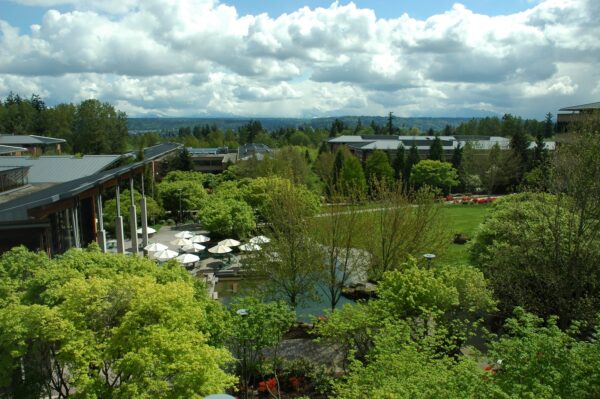Kirkland, Washington, is a mid-sized city located in King County, which has seen consistent growth in new residents over the past five years. It is a suburb of Seattle and is considered one of the best places to live in Washington. However, like any other city, it has its own set of pros and cons that residents and potential newcomers should consider.
One of the major advantages of living in Kirkland is its livability. It has a diverse community, good schools, and a low poverty rate. Kirkland also has a vibrant nightlife and is located within 10-50 miles from an airport. Furthermore, the city has fast internet, both fixed lines and mobile, which is a significant advantage for people who work remotely. However, on the downside, Kirkland has high property prices, and the sales tax is also high.
Overall, Kirkland is a great place to live, but it may not be for everyone. In this article, we will explore the pros and cons of living in Kirkland, Washington, to help readers make an informed decision about whether it is the right place for them.
Pros of Living in Kirkland, Washington
Quality of Life
Kirkland, Washington is a mid-sized city in King County that offers a high quality of life to its residents. The city has consistently ranked as one of the best places to live in Washington State due to its low crime rate, excellent schools, and beautiful parks. Kirkland is known for its charming waterfront, picturesque parks, thriving art scene, boutique shopping, and numerous dining options. The city has a small-town feel with the amenities of a larger city.
Education System
Kirkland has a highly rated education system, with a number of excellent public and private schools. The Lake Washington School District, which serves Kirkland, has a graduation rate of 94%, and the district’s schools consistently rank among the best in the state. In addition, Kirkland is home to several prestigious private schools, including the International Community School and the Evergreen Academy.
Recreational Opportunities
Kirkland has an abundance of recreational opportunities for residents to enjoy. The city has over 25 parks, including Juanita Beach Park, Marina Park, and Heritage Park, all of which offer stunning views of Lake Washington. The city also has a number of hiking and biking trails, including the Cross Kirkland Corridor, a 5.75-mile trail that runs through the heart of the city. Additionally, Kirkland has several golf courses, tennis courts, and community centers that offer a variety of programs and activities for residents of all ages.
Employment Opportunities
Kirkland is home to several major employers, including Google, Tableau, and EvergreenHealth. The city also has a thriving small business community, with many locally owned shops and restaurants. Kirkland’s proximity to Seattle and Bellevue provides residents with access to even more job opportunities in a variety of industries. Overall, Kirkland offers a strong economy and a diverse range of employment opportunities for its residents.
Cons of Living in Kirkland, Washington
Cost of Living
One of the major cons of living in Kirkland, Washington is the high cost of living. The cost of living in Kirkland is higher than the national average, with housing being the biggest expense. The median home price in Kirkland is over $900,000, which is more than double the national median home price. Renting in Kirkland is also expensive, with the average rent for a one-bedroom apartment being around $2,000 per month.
Traffic and Commuting
Kirkland’s location in the Seattle metropolitan area means that traffic and commuting can be a major issue. The city’s roads are often congested, especially during rush hour, making commuting to and from work a frustrating experience. Kirkland does have a good public transportation system, including buses and light rail, but it may not be convenient for everyone.
Weather Conditions
The weather in Kirkland, Washington can be a challenge for some people. The city experiences a lot of rain, with an average of 41 inches of rainfall per year. The winters in Kirkland can also be cold and damp, with an average of 4 inches of snowfall per year. While the summers are mild and pleasant, the rest of the year can be dreary and wet. This may not be ideal for people who prefer sunny and warm weather.
Overall, while Kirkland, Washington has many positives, there are also some cons to consider before deciding to move there. The high cost of living, traffic and commuting, and weather conditions are some of the factors that may make living in Kirkland a challenge for some people.
Conclusion
Living in Kirkland, Washington has its advantages and disadvantages, as with any city. The city’s location near Seattle and its picturesque waterfront make it an attractive place to live. However, the high cost of living and traffic congestion can be a challenge for some residents.
One of the pros of living in Kirkland is its proximity to Seattle. Residents have access to the city’s job market, cultural events, and entertainment options while enjoying a quieter suburban lifestyle. The city also boasts a thriving art scene, numerous dining options, and picturesque parks.
On the other hand, the high cost of living in Kirkland can be a disadvantage for some residents. Housing prices are among the highest in the state, and the city’s popularity means that traffic congestion can be an issue during peak hours.
Another potential downside of living in Kirkland is the weather. The city experiences a high amount of rainfall and humidity, which may not be comfortable for everyone. Additionally, the city has a lower number of sunny days compared to other cities in the state.
Overall, Kirkland is a great place to live for those who can afford the high cost of living and don’t mind the weather and traffic congestion. Its proximity to Seattle and picturesque waterfront make it an attractive option for many residents.





0 Comments